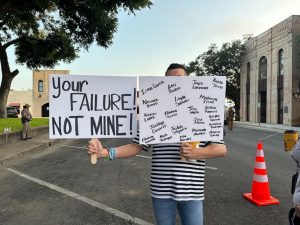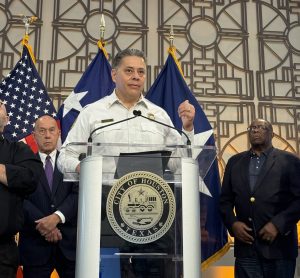Harris County Attorney Vince Ryan today sued generic drug manufactures over a massive price fixing scheme that cost Harris County millions and the US healthcare system billions in inflated drug prices.
Ryan contends that the 43 companies named in the suit were part of an overarching conspiracy to significantly reduce competition and increase prices of at least 181 generic drugs across the entire industry. Because of this conspiracy, prices of generic drugs skyrocketed at unprecedented rates, many by more than 1000%, costing individual payers and the healthcare system billions of dollars.
“These manufacturers routinely and systematically sought out their competitors in an effort to reach agreements to allocate market share and maintain or raise prices,” said County Attorney Ryan. “We intend to hold these pharmaceutical companies accountable for one of the most egregious and massive price-fixing conspiracies in the history of the United States.”
Ryan explains in the lawsuit that while generic drugs are supposed to cost less than brand-name medications, these companies conspired to thwart price reductions by agreeing to manipulate the market, divide up clients among themselves and obstruct generic competition in an ongoing scheme to fix the price of generic drugs. This conspiracy resulted in massive profits for the companies at the expense of Harris County, as well as all consumers in the generic drug market nationwide.
Harris County provides health benefits, including coverage for prescription drugs, to 38,000 employees, retirees and their dependents. Harris County also purchases drugs administered to inmates in the county jail. Since 2013, the county has paid over $25 million for the generic drugs involved in the price fixing scheme.
Typically, a branded drug manufacturer first develops an innovative drug and is rewarded with a patent granting them a period of exclusivity to sell the drug. During this period of patent protection, the manufacturer markets and sells its drug under a brand name and the lack of competition permits the manufacturer to set its prices extremely high. Once the brand-name drug’s exclusivity period ends, additional firms that receive Federal Drug Administration approval are permitted to manufacture and sell “generic” versions of the brand-name drug. Generic drugs provide a therapeutically equivalent substitute for brand-name drugs. They cost substantially less than branded drugs—up to 75 to 85 per cent less—in a competitive market with several manufacturers producing them.
County Attorney Ryan explains in the lawsuit that because so few companies manufacture generic drugs, the defendants can control nearly the entire market for a particular product. Ryan alleges the manufacturers by way of their conspiracy, agree among themselves how much of the market each company will have—called the “fair share” inside the conspiracy—and agree not to undercut each other on price. On the other hand, when one manufacturer decides to raise prices, all the companies can do so too because their illegal “fair share” agreement mandates that they keep their individual percentage of the market.
Among the drugs whose prices were controlled by this conspiracy are those that treat hyperactivity disorders, asthma, skin conditions, painkillers, heart failure, seizures, bacterial infections, high blood pressure, Hepatitis B, arthritis, high cholesterol, epilepsy and Type 2 diabetes. Some of these drugs include the generic equivalents for Celebrex, Synthroid, Adderall, Lidoderm, prescription strength Tylenol, Penicillin, Lidocaine, Relafen, and Prozac. The generic drug Albuterol, so widely used by people suffering from Asthma, is also at issue. And this is just to name a few.
The U.S. Department of Justice, Congress and attorneys general in many states have been investigating this price-fixing scheme.
“These 43 companies have violated national and state laws that make conspiracy, deceptive trade practices, anti-trust and unjust enrichment illegal,” said County Attorney Ryan. “We are seeking temporary and permanent injunctions to stop this scheme and reimbursement for the County.
“For years, these manufacturers have leveraged the culture of cronyism within their industry to artificially inflate prices,” added Ryan. “We will not let them get away with this.”
Click here for a copy of the petition.










